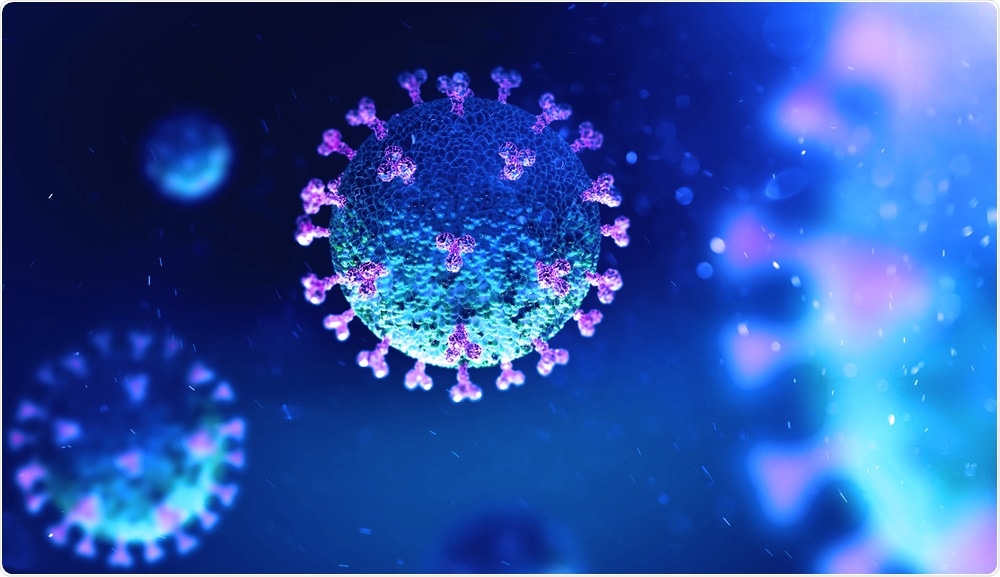The findings of a new study led by Cleveland Clinic indicate that melatonin, a hormone that governs the sleep-wake cycle and often used as an over-the-counter sleep aid, could be a potential treatment option for COVID-19.

Image Credit: Andrii Vodolazhskyi/Shutterstock.com
With the never-ending spread of COVID-19 across the world, specifically with cases increasing during the so-called “fall surge,” reformulating drugs that have already been approved by the U.S. Food and Drug Administration for new therapeutic uses continues to be the most effective and economical approach to prevent or treat the disease.
The study results, published recently in PLOS Biology, report that an innovative artificial intelligence platform created by researchers from Lerner Research Institute to find potential drugs for COVID-19 repurposing has shown that melatonin is a viable candidate.
Moreover, an investigation of patient data from Cleveland Clinic’s COVID-19 registry showed that the use of melatonin was associated with an almost 30% reduced chance of testing positive for SARS-CoV-2 (the virus responsible for COVID-19 disease) after adjusting for race, age, smoking history, and several other disease comorbidities.
Specifically, the reduced chances of testing positive for the virus increased from 30% to 52% for African Americans upon adjusting for the same variables.
It is very important to note these findings do not suggest people should start to take melatonin without consulting their physician. Large-scale observational studies and randomized controlled trials are critical to validate the clinical benefit of melatonin for patients with COVID-19, but we are excited about the associations put forth in this study and the opportunity to further explore them.”
Feixiong Cheng, PhD, Study Lead Author and Assistant Staff, Genomic Medicine Institute, Cleveland Clinic
In this study, the team leveraged network medicine methodologies and large-scale electronic health records from Cleveland Clinic patients to determine the common pathologies and clinical manifestations in COVID-19 and other diseases.
They particularly quantified the proximity between host genes/proteins and those well-associated with 64 other diseases over various disease categories (malignant cancer and cardiovascular, neurological, autoimmune, pulmonary, and metabolic diseases). Here, closer proximity signifies a higher chance of pathological associations between the diseases.
For instance, they discovered that proteins linked to sepsis and respiratory distress syndrome, two main reasons for death in patients with severe COVID-19, were largely linked to multiple SARS-CoV-2 proteins.
This signals to us, then, that a drug already approved to treat these respiratory conditions may have some utility in also treating COVID-19 by acting on those shared biological targets.”
Feixiong Cheng, PhD, Study Lead Author and Assistant Staff, Genomic Medicine Institute, Cleveland Clinic
In general, they found that pulmonary (for example, pulmonary fibrosis and chronic obstructive pulmonary disease), autoimmune (for example, inflammatory bowel disease), and neurological (for example, attention-deficit hyperactivity disorder and depression) diseases exhibited considerable network proximity to SARS-CoV-2 genes/proteins and found 34 drugs as repurposing candidates, where melatonin is chief among them.
Recent studies suggest that COVID-19 is a systematic disease impacting multiple cell types, tissues and organs, so knowledge of the complex interplays between the virus and other diseases is key to understanding COVID-19-related complications and identifying repurposable drugs. Our study provides a powerful, integrative network medicine strategy to predict disease manifestations associated with COVID-19 and facilitate the search for an effective treatment.”
Feixiong Cheng, PhD, Study Lead Author and Assistant Staff, Genomic Medicine Institute, Cleveland Clinic
Source:
Journal reference:
Zhou, Y., et al. (2020) A network medicine approach to investigation and population-based validation of disease manifestations and drug repurposing for COVID-19. PLOS Biology. doi.org/10.1371/journal.pbio.3000970.